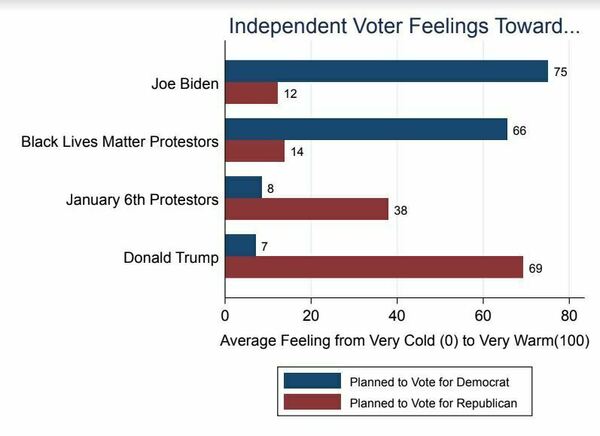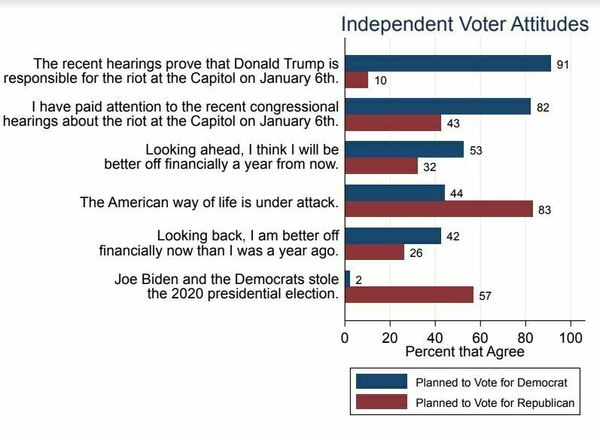The Rooney Center for the Study of American Democracy at the University of Notre Dame released new results from its new biannual Health of Democracy Survey.
The nationally representative survey was conducted from Oct. 20 to 26 via the NORC AmeriSpeak Panel on behalf of the Rooney Center. The survey included 1,500 adults age 18 and older. The survey’s margin of error is ±2.5 percentage points at the 95 percent confidence level. Sample tolerances for subgroups are larger.
Participants who planned to vote in the upcoming midterm elections were asked whether they planned to vote for a Republican candidate or a Democratic candidate for the House of Representatives. Almost all partisans (98 percent of Republicans and 99 percent of Democrats) planned to vote for their party’s candidate.
Matthew Hall, the Rooney Center’s director, said, “In today’s highly polarized environment, voters are very loyal to their preferred political party. As a result, elections are almost entirely determined by voter turnout and independent voters.”

The results showed that 54 percent of independents planned to vote for the Democratic candidate in their district, and compared to partisan voters, independents tended to be disproportionately young, male, single (never married), self-employed and from low-income households (less than $30,000).
Jan. 6, Financial Optimism and Election Denial Drove Midterm Voting
Not surprisingly, the strongest predictors of voting intentions were feelings about President Joe Biden and (to a somewhat lesser extent) former President Donald Trump. Additionally, independents who planned to vote for a Republican were more likely to agree that Joe Biden and the Democrats stole the 2020 presidential election, the American way of life is under attack and there will be a substantial amount of election fraud across the country in the midterms.
However, independents who planned to vote for a Democrat were more likely to agree that they paid attention to the recent congressional hearings about the riot at the Capitol on Jan. 6, 2021, the recent congressional hearings prove that Trump is responsible for the riot at the Capitol on Jan. 6, they are better off financially now than they were a year ago and they will be better off financially a year from now, and they feel warmly toward the Black Lives Matter protesters.

Cancel Culture and Critical Race Theory Not Associated with Voting
However, independents’ vote intentions were not associated with concerns about cancel culture, critical race theory or their own financial situation. “These results are somewhat surprising,” Hall said. “Despite the prominence of topics like cancel culture, CRT and inflation in the media and political discourse, there is no evidence that these issues affected the results of the midterm elections.”
This is the second release of findings from the Rooney Center’s new biannual Health of Democracy Survey.
“We at the Rooney Center believe that the preservation of democracy and the democratic spirit in the American public is an essential part of Notre Dame’s larger mission to fight oppression and injustice in our society,” he said. “It’s a necessary condition for everything else we do as a Catholic university.”
Originally published by at rooneycenter.nd.edu on Nov. 22.